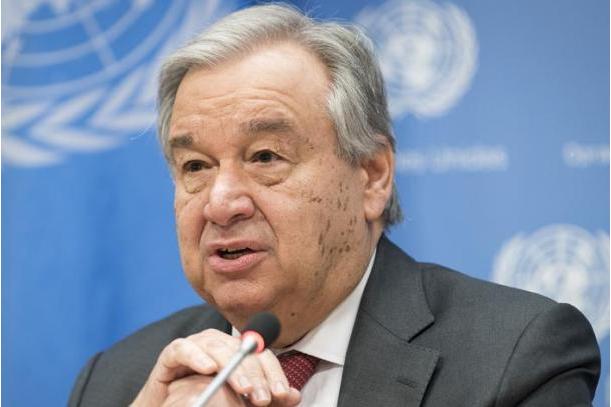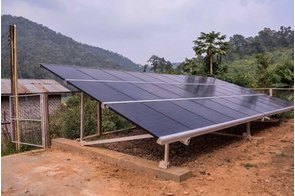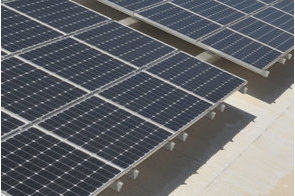Guterres calls for urgent, inclusive energy transition in Africa

Summary
The central objective of the United Nations this year is to build a global coalition for carbon neutrality by the middle of the century – Guterres.
United Nations Secretary General, António Guterres, has called for global solidarity to accelerate the shift from fossil-based energy systems to achieve net-zero greenhouse gas (GHG) emissions by the second half of this century. Guterres made the call during the COP26 Roundtable on Clean Power Transition, which held on Monday.
The UN chief said a transition from fossil fuels to renewable energy is needed to limit global temperature rises to 1.5 degrees Celsius (°C) above pre-industrial levels by the end of this century and reduce the devastating effects of global warming. He said adequate international support needs to be given to African economies and other developing countries' economies in the shift to a clean, sustainable energy pathway.
“The central objective of the United Nations this year is to build a global coalition for carbon neutrality by the middle of the century,” Guterres said. “All countries need credible mid-term goals and plans that are aligned with this objective.”
He added that Africa must be at the centre of the engagement. Out of the 789 million people across the developing world that have no access to electricity, three-quarters of them live in sub-Saharan Africa. "This is both an injustice and an impediment to sustainable development," the UN chief said.
During his speech, Guterres repeated his appeal to developed nations to fulfill their pledge to provide $100 billion annually climate mitigation and adaptation in developing countries. He said public and private finance flows should support the goals of the Paris Agreement and the 2030 Agenda for Sustainable Development.
"I particularly appeal to the private sector champions of renewable energy," the UN chief said. "We need their know-how and their creativity to accelerate a renewable energy transition. And let me emphasize, this must be a just and inclusive transition. That means training and reskilling and providing new opportunities."
Themed, “Achieving a rapid shift to green, affordable and resilient power systems,” the COP26 Roundtable held virtually and was co-hosted by the Italian government. The event held preparatory to the upcoming United Nations Climate Change Conference (COP 26) scheduled to take place in Glasgow, United Kingdom, from November 1-12, 2021, following its postponement from last year due to COVID-19. The UK, host of the conference, has established the Energy Transition Council to accelerate the transformation.
Participants at the COP26 Roundtable on Monday included African Development Bank (AfDB) President, Akinwumi Adesina; COP26 President, Alok Sharma; UK Foreign Secretary, Dominic Raab; Italian Minister of Foreign Affairs, Luigi Di Maio; and representatives from governments, multilateral development banks and international organisations.
Adesina reiterating the AfDB’s policy of not financing coal projects. He said the bank has prioritised renewables as the mainstay of its Light Up and Power Africa strategy. The share of renewable energy in the bank’s power generation investments now stands at 80 per cent. AfDB expects to invest $10 billion in the energy sector over the next five years.
“The bank has been at the forefront of transformative renewable energy projects in Africa, including large-scale concentrated solar projects in Morocco – one of the largest in the world – and the Lake Turkana wind power project, the largest in Sub-Saharan Africa,” Adesina said.
Sharma said the global transition to clean power must move at least four times the current pace to achieve targets set out in Paris Agreement. Under the Paris Agreement, nations set a goal of limiting increase in global average temperatures to 2°C or 3.6 degrees Fahrenheit (°F), although with the ambitions for a stricter limit of 1.5°C or 2.7°F of global temperatures. Experts say limiting warming at the lower limit will require slashing carbon pollution by 45 per cent by 2030 and reaching net-zero by 2050.
“This is our moment in history to make those vital decisive and positive choices so that we can protect the future of our planet and our peoples. So, let’s continue to work together to bring the benefits of clean affordable and resilient power to the world,” the COP26 President said.
Related
-
Wärtsilä gains recognition as a leader in sustainable solutions and CSR
Wärtsilä emphases environmental excellence, fuel flexibility and operational efficiency.
-
IEC launches regional centre to increase electricity access in Africa
A reliable electricity supply in Africa will improve basic service such as healthcare.
-
Dalma, Exergy Capital establish Sharia-compliant and sustainable energy fund
The investment strategy seeks to generate attractive risk-adjusted returns by investing in real assets throughout the ...










